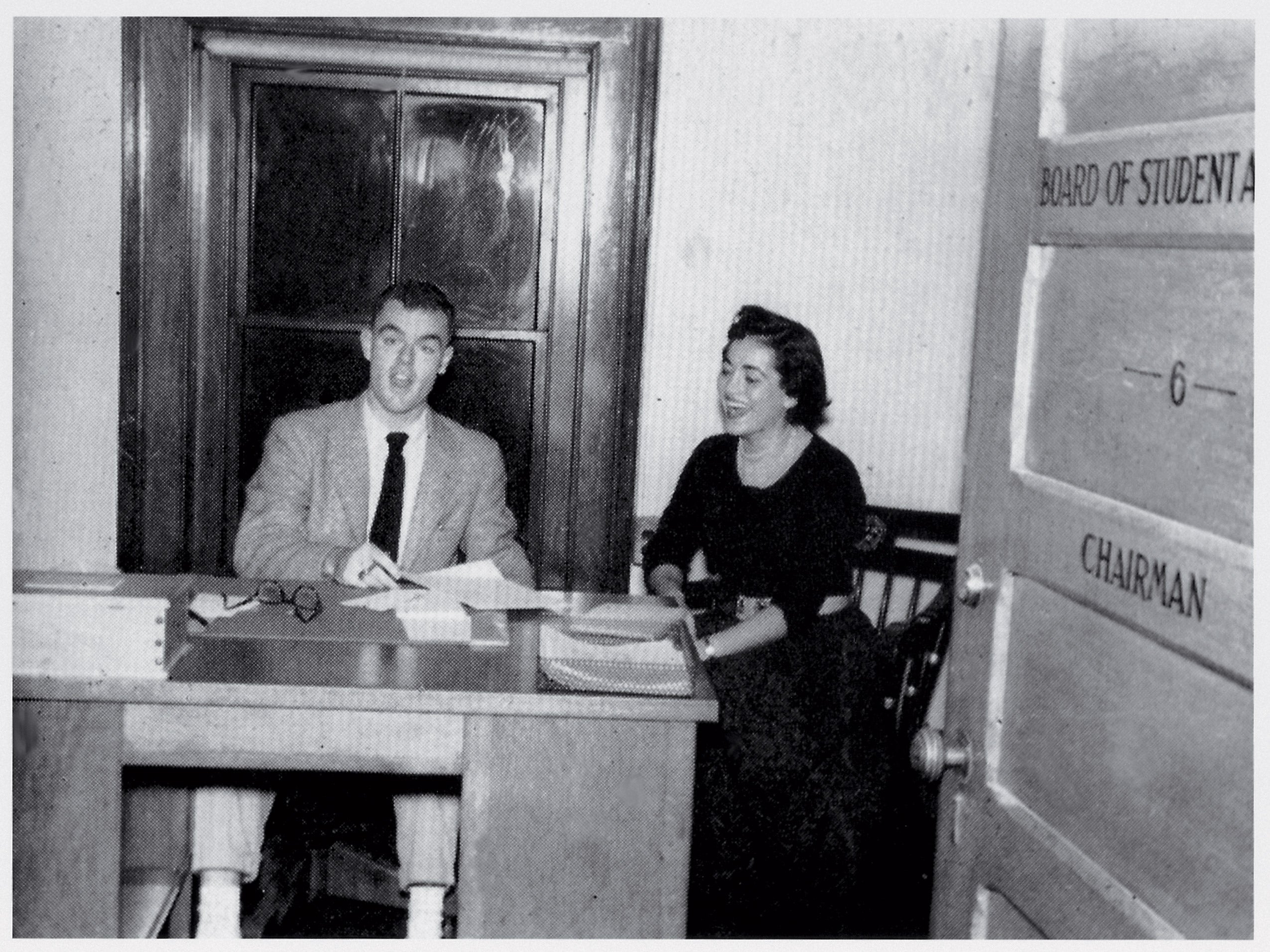Founded in 1910 to “educate and assist students,” the Board of Student Advisers, the Law School’s oldest service organization, celebrates its 90th anniversary this year. From BSA’s early days as adviser to first-year students, through its years of teaching legal research to 1Ls to help them compete in the Ames competition, the organization has influenced generations of law students. Its publication, Introduction to Advocacy: Brief Writing and Oral Argument in Moot Court Competition, first produced in 1970, is still in print today.
Katherine Porter ’01, who is writing her third-year paper on the BSA, has found that the value of peer assistance was recognized as early as the 1920s, during Dean Roscoe Pound’s tenure. Concerned that the law clubs, student groups that prepared and comp›ted together in the Ames Moot court, had become elitist, Pound ordered the board to create more law clubs and expand the opportunity for all students interested in Ames. Supervising law clubs and teaching first-year students the fundamentals of legal research remained the BSA’s major function through the 1960s.
Until the 1970s, the BSA selected members from the group of students who placed beneath the cutoff for Law Review membership. The BSA then instituted a selection procedure that included recommendations, written essays, and interviews. The BSA also began to offer a range of educational activities, including trips to courts and prisons, and specially designed educational projects for student organizations.
“Today’s students join the BSA primarily to teach and to be involved in the first-year experience,” said Sheldon Pollock ’01, vice president of the BSA. “In my own case, my first year at HLS was made considerably more manageable in large part due to my BSA instructor, who was a constant source of advice and guidance. I like to think it is this type of experience that draws the vast majority of students to the BSA today.”
In addition to teaching the first-year legal writing course, the BSA administers the first-year and upper-year Ames Moot Court competitions, the Williston Contracts competition, and the School’s first-year orientation program. The BSA also compiles course evaluations and sponsors seminars for first-year students on such topics as careers and exams.
This year the BSA is poised for the impact of changes in the way that first-year students learn lawyering skills. “The role of students in the teaching of research, writing, and other lawyering skills will continue to be important, but will shift as the curriculum develops and is cotaught by faculty, third-year students, and other professional staff,” said Visiting Professor Michael Meltsner, director of the lawyering program, who was hired last year to review the first-year curriculum and to develop a curriculum plan.
In the face of these changes Porter is confident about the organization’s future. “I am certain that the BSA will be able to keep changing and responding to the times,” she said.
